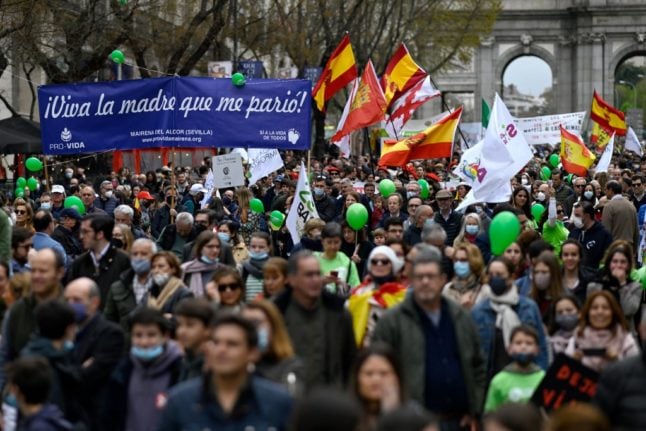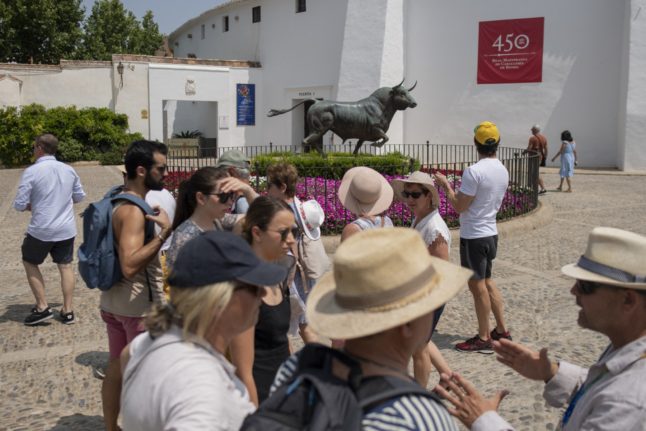Thousands of people marched though Madrid on Sunday to protest against abortion, as Spain’s leftist government prepares a law to guarantee access to the procedure at public hospitals.
Carrying signs that read “Abortion is not right” and chanting “More respect for life”, demonstrators walked through the centre of the Spanish capital to Cibeles square in central Madrid where a manifesto was read aloud.
“There are other alternatives. After an abortion there is always trauma but that is not talked about,” said Yolanda Torosio, a 44-year-old secretary who attended the protest with her daughter.
The protest was organised by the “Yes to Life” platform which estimated that some 20,000 people took part. The central government’s representative in Madrid put the number of marchers at about 9,000.
The crowd included parents pushing strollers, retired couples and groups of youths, some carrying Spanish flags.
While Spain decriminalised abortion in 1985, women in the predominantly Catholic country still face obstacles when choosing to terminate a pregnancy since many doctors refuse to care out the procedure.
According to the OMC Spanish doctors’ association, “most” obstetrician-gynaecologists who work in the public sector consider themselves “conscientious objectors” and refuse to carry out abortions.
As a result women in some regions must travel hundreds of kilometres for an abortion because there is no private clinic nearby and the local hospital will not perform them.
Socialist Prime Pedro Sanchez’s government is preparing a law to ensure that all public hospitals perform abortions, and wants to ban protests outside of abortion clinics as “harassment”.
IT also wants to modify the law so minors of 16 and 17 can terminate a pregnancy without their parents’ consent, as is the case in Britain and France.
Polls show a majority of Spaniards are in favour of keeping the country’s existing abortion laws, which allow the procedure on demand in the first 14 weeks of pregnancy.



 Please whitelist us to continue reading.
Please whitelist us to continue reading.
Member comments